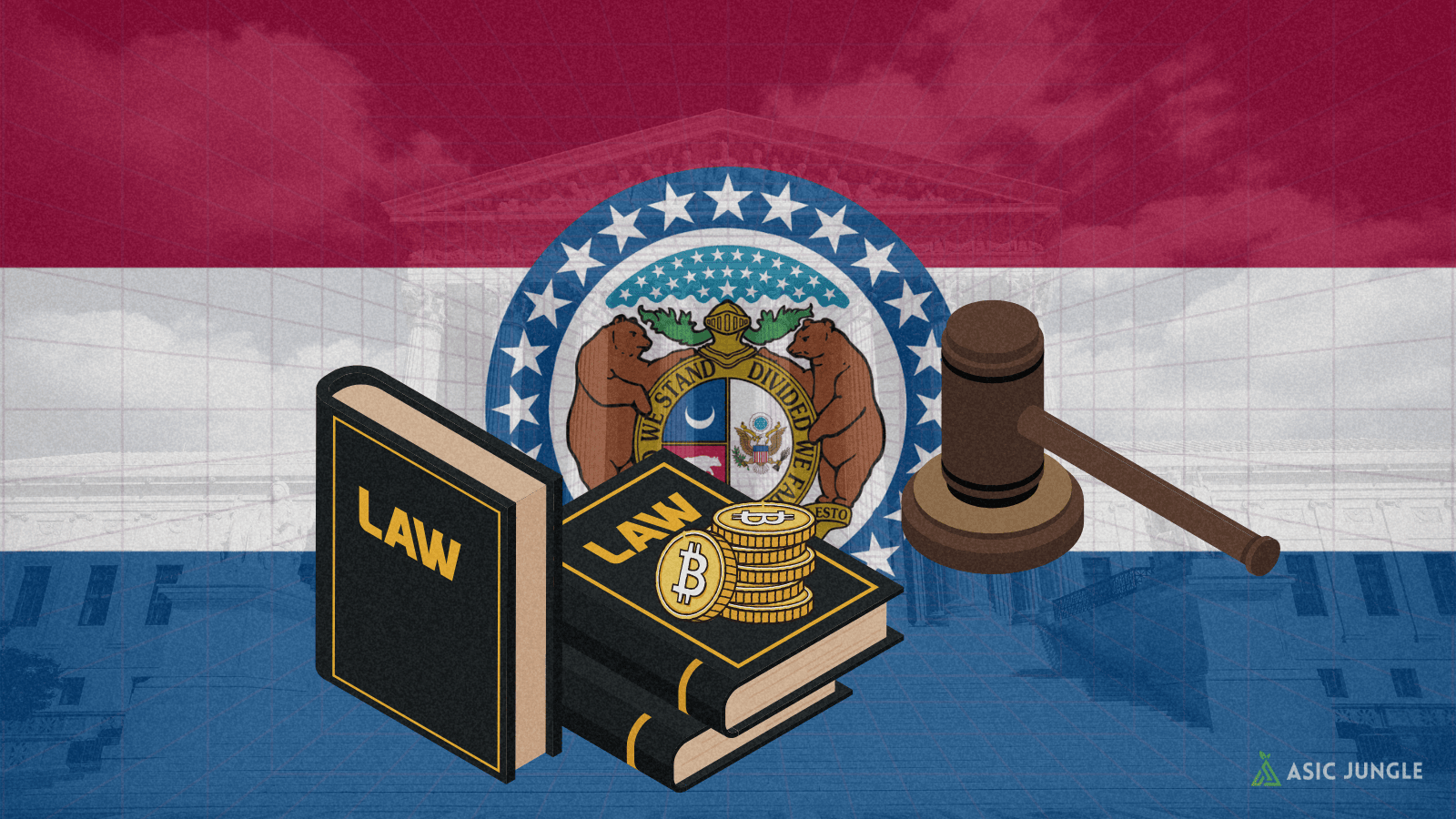Bitcoin miners play a key role in ensuring the network is able to run properly. Bitcoin miners are essential to Bitcoin’s proof of work consensus model, which is why everyone who is supportive of Bitcoin and invested in its long-term success should also be paying attention to the issues that miners face.
Recently, the state of Missouri took a step in a Bitcoin mining-friendly direction by unanimously passing a bill that protects Bitcoin miners, recognizing that Bitcoin mining can help grow economies, stabilize the grid, and be a positive force in the development of renewable energy.
Let’s take a closer look at the implications of Missouri’s new “right to mine” bill, and the implications it’ll have on the state of Bitcoin mining in the United States and across the world.
Breaking down Missouri’s new Bitcoin mining bill
Bitcoin mining protection advocates are often looking to combat restrictive legislation that sees Bitcoin miners charged higher prices than other industrial players. In some states and Canadian provinces, there are restrictions placed on the amount of energy that can be used for Bitcoin mining in general.
Missouri’s new Bitcoin mining bill prevents the charging of discriminatory electricity rates charged to those mining Bitcoin. In the bill, “discriminatory rates” are defined as “rates for electricity that are substantially different from the rates charged for other industrial uses of electricity in similar geographic areas.”
Missouri’s new piece of legislation is largely centred around setting and defining the framework for how digital assets are handled in the state—with particular attention paid to Bitcoin mining. That Missouri’s Bitcoin mining bill was adopted unanimously by policymakers spanning the political spectrum is testament to the plain and evident fact that Bitcoin mining should not face prices arbitrarily higher than other similar industrial activities.
The new bill makes distinctions between those mining Bitcoin at home and those who run mining businesses, and offers protections for those engaged in both types of operations. In the bill, a mining business is defined as one that consumes more than a megawatt of electricity, and the bill specifies that Bitcoin mining businesses have the right to run in industrial zones.
Bitcoin mining in the US
Across the world, governments are trying to decide how they should engage with and handle digital assets. For some time now, the White House has been referencing its plans to “mitigate cryptocurrencies” by regulating Bitcoin and how the SEC and the FED view and interact with blockchain technology.
In March of 2022, President Biden submitted an executive order titled: “Ensuring Responsible Development of Digital Assets” which was seen as being a step towards defining the country’s approach to cryptocurrencies.
While the federal government is slowly ambling towards a game plan with regards to Bitcoin mining legislation, action has been more rapid on the state level, as evidenced by recent bills from lawmakers from Missouri and other states to protect the rights of businesses and citizens who mine Bitcoin or run nodes.
Other “right to mine” Bitcoin bills
In February 2023, the Montana senate passed a similar right to mine Bitcoin bill, which passed by a landslide 37-13 vote. Montana has emerged as one of the most promising states for Bitcoin mining because it has abundant, affordable energy, and its climate conditions are favourable for cooling mining equipment.
Montana’s government generally takes a positive attitude towards Bitcoining mining in comparison to more restrictive states, and blockchain-based businesses have had a positive effect on the state’s economy.
Also in February 2023, a similar bill passed in Mississippi, which specified that it’s legal to run a node for the purpose of Bitcoin mining at home, and that it’s legal to operate a Bitcoin mining business. In March, a bill was introduced in Texas seeking to establish rights of individuals to own Bitcoin, to code or develop on the network, and to use energy to mine Bitcoin in the state.
These rights may sound basic, but they are a stepping stone on the path towards cementing the rights of Americans to mine Bitcoin in a way that is free of unfair restrictions or financial penalties.
The Satoshi Action Fund
The reason why similar-looking bills that establish and protect the rights of Bitcoin miners have been popping up in a number of states is because they were assisted by the Satoshi Action Fund: an educational organization with headquarters in Mississippi that is working to shift the narrative around Bitcoin mining in a positive direction, sidestepping the stigma and ill-informed criticism the industry often faces.
The Satoshi Action Fund’s website offers insights about ways that Bitcoin miners are working to reduce emissions, increase the growth of renewables, balance the grid, and supply excess power to those who need it. The fund gives presentations to government bodies, policymakers, and more to spread education about the benefits that Bitcoin mining can bring, and is an example of an educational organization having a measurable positive influence on the Bitcoin mining industry in the United States.
Optimizing your mining capabilities with Asic Jungle
It’s no secret that Bitcoin’s proof-of-work protocol requires a substantial amount of power. Large-scale Bitcoin mining enterprises have the ability to transform underutilized rural areas into industrial centres that provide jobs and prosperity. In Bitcoin-friendly states, policymakers are able to envision and welcome the ways that Bitcoin mining can stimulate the economy and improve the tax base.
As Bitcoin mining hardware continues to become more efficient, and renewable energy infrastructure continues to be developed, Bitcoin mining will develop its ability to be sustainable and environmentally responsible. Integrations with existing technology like combined heat and power—which allows for the recovery and monetization of waste heat—make Bitcoin mining better for the environment and more profitable for miners. Bitcoin mining has developed a proven record as being a catalyst for renewable energy startups.
As the rights of Bitcoin miners continue to be defined in jurisdictions across the globe, one constant in the Bitcoin mining industry is the need for the latest mining equipment at the best rates. For years, ASIC Jungle’s innovative marketplace services have been helping Bitcoin miners have the best possible experience when fulfilling their Bitcoin mining hardware procurement needs.






